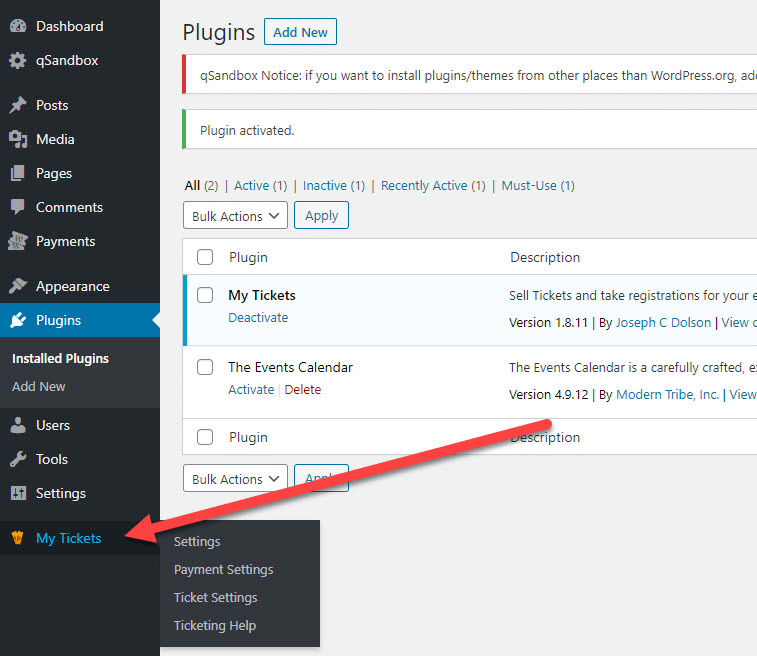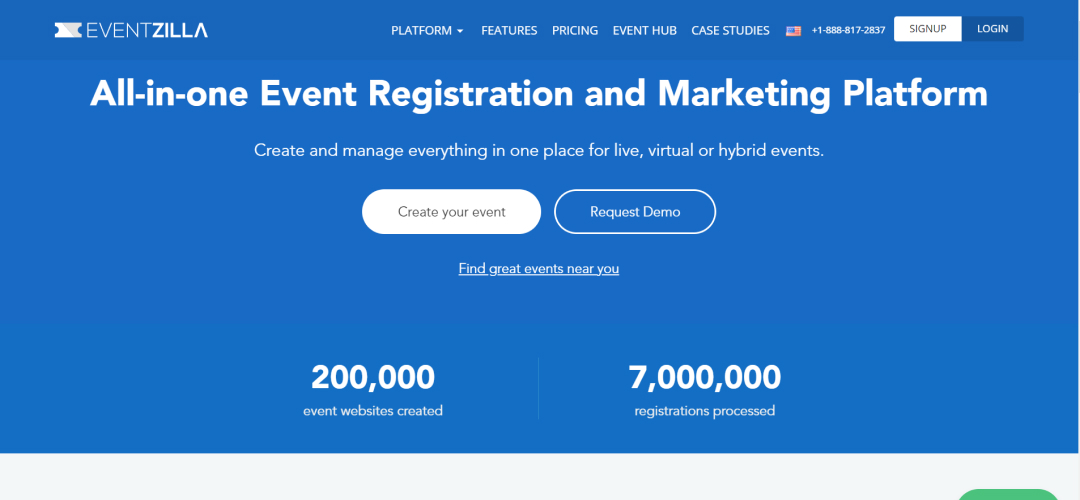Why Choosing the Right Ticketing Website Matters
When it comes to selling tickets online, selecting a reliable and user-friendly ticketing website is crucial for success. The right platform can significantly impact sales, customer satisfaction, and revenue. A well-designed ticketing website can help event organizers to efficiently manage ticket sales, reduce administrative burdens, and provide a seamless experience for customers.
In today’s digital age, customers expect a hassle-free and secure online ticket purchasing experience. A ticketing website that is difficult to navigate, slow to load, or plagued by technical issues can lead to frustrated customers and lost sales. On the other hand, a website that is easy to use, mobile-friendly, and provides clear event information can increase customer satisfaction and encourage repeat business.
Furthermore, the right ticketing website can also help event organizers to maximize their revenue. A platform that offers features such as dynamic pricing, ticket bundling, and promotions can help to increase average ticket prices and boost overall sales. Additionally, a website that provides real-time sales data and analytics can help event organizers to make informed decisions and optimize their ticket sales strategy.
With so many ticketing websites available, it can be overwhelming to choose the best one for your event. However, by considering factors such as fees, payment processing, customer support, and mobile optimization, event organizers can make an informed decision and select a website that meets their needs. In this article, we will explore the top ticketing websites for event organizers and provide tips on how to choose the best website for your event.
How to Sell Tickets Online: A Beginner’s Guide
Selling tickets online can be a straightforward process if you have the right guidance. In this section, we will walk you through the steps to sell tickets online using popular ticketing websites like Eventbrite and Ticketmaster.
Step 1: Set up an account on a ticketing website. Most ticketing websites offer a free sign-up process that requires basic information such as name, email address, and password. Once you have created an account, you can start creating your event listing.
Step 2: Create an event listing. This is where you provide details about your event, including the name, date, time, location, and ticket prices. Make sure to include a clear and concise description of your event to help attract potential customers.
Step 3: Set up ticket sales. Once your event listing is created, you can set up ticket sales by specifying the number of tickets available, ticket prices, and any applicable fees. You can also set up different ticket types, such as VIP or general admission.
Step 4: Manage ticket sales. Once ticket sales are live, you can track sales in real-time using the ticketing website’s dashboard. You can also use this dashboard to manage orders, issue refunds, and communicate with customers.
Popular ticketing websites like Eventbrite and Ticketmaster offer a range of features to help you sell tickets online. Eventbrite, for example, offers a user-friendly interface, customizable event listings, and integrated payment processing. Ticketmaster, on the other hand, offers a wide range of ticketing options, including reserved seating and ticket bundles.
When choosing a ticketing website, consider the fees associated with each platform. Some ticketing websites charge a flat fee per ticket, while others charge a percentage of the ticket price. Make sure to read the fine print and understand the fees associated with each platform before making a decision.
By following these steps and using popular ticketing websites like Eventbrite and Ticketmaster, you can easily sell tickets online and reach a wider audience. In the next section, we will review and compare top ticketing websites for event organizers.
Top Ticketing Websites for Event Organizers
When it comes to choosing the best websites to sell tickets, event organizers have a wide range of options to consider. In this section, we will review and compare three top ticketing websites: Eventbrite, Ticketmaster, and Songkick.
Eventbrite is one of the most popular ticketing websites, with over 50 million tickets sold annually. It offers a user-friendly interface, customizable event listings, and integrated payment processing. Eventbrite also provides a range of features, including ticket bundling, reserved seating, and ticket promotions.
Ticketmaster is another well-established ticketing website, with a strong presence in the sports and entertainment industries. It offers a wide range of ticketing options, including reserved seating, ticket bundles, and VIP packages. Ticketmaster also provides a robust analytics platform, allowing event organizers to track sales and optimize their ticketing strategy.
Songkick is a ticketing website that specializes in concerts and music festivals. It offers a unique feature set, including personalized event recommendations and real-time ticket availability. Songkick also provides a user-friendly interface and integrated payment processing, making it easy for event organizers to sell tickets online.
When comparing these top ticketing websites, it’s essential to consider their features, fees, and customer support. Eventbrite, for example, charges a flat fee of 2.5% + $0.79 per ticket, while Ticketmaster charges a variable fee based on the ticket price. Songkick, on the other hand, charges a flat fee of 10% + $0.50 per ticket.
In terms of customer support, all three ticketing websites offer 24/7 support via phone, email, and live chat. However, Eventbrite and Ticketmaster have a more comprehensive support platform, with extensive FAQs and knowledge bases.
Ultimately, the best ticketing website for your event will depend on your specific needs and requirements. By considering the features, fees, and customer support of each platform, you can make an informed decision and choose the best website to sell tickets for your event.
Specialized Ticketing Platforms for Specific Events
While general ticketing websites like Eventbrite and Ticketmaster can be used for a wide range of events, there are also specialized ticketing platforms that cater to specific types of events. These platforms offer unique features and benefits that can help event organizers to better manage their ticket sales and provide a more tailored experience for their customers.
For sports events, StubHub is a popular ticketing platform that offers a wide range of features, including ticket resale, ticket bundling, and VIP packages. StubHub also provides a robust analytics platform, allowing event organizers to track sales and optimize their ticketing strategy.
For concerts and music festivals, Ticketfly is a specialized ticketing platform that offers a range of features, including ticket bundling, reserved seating, and VIP packages. Ticketfly also provides a user-friendly interface and integrated payment processing, making it easy for event organizers to sell tickets online.
For theater productions, Telecharge is a specialized ticketing platform that offers a range of features, including ticket bundling, reserved seating, and VIP packages. Telecharge also provides a robust analytics platform, allowing event organizers to track sales and optimize their ticketing strategy.
These specialized ticketing platforms offer a range of benefits, including increased ticket sales, improved customer satisfaction, and enhanced revenue. By using a platform that is specifically designed for their type of event, event organizers can provide a more tailored experience for their customers and better manage their ticket sales.
In addition to these specialized platforms, there are also a range of other ticketing websites that cater to specific types of events, such as festivals, conferences, and workshops. By choosing a ticketing website that is specifically designed for their type of event, event organizers can ensure that they are providing the best possible experience for their customers and maximizing their ticket sales.
What to Look for in a Ticketing Website
When choosing a ticketing website to sell tickets online, there are several key factors to consider. These factors can help ensure that you choose a website that meets your needs and provides a positive experience for your customers.
One of the most important factors to consider is fees. Different ticketing websites charge different fees for their services, and these fees can eat into your profits. Look for a website that charges a flat fee per ticket, rather than a percentage of the ticket price. This can help you save money and maximize your revenue.
Another important factor to consider is payment processing. Look for a website that offers integrated payment processing, which allows customers to pay for tickets directly on the website. This can help streamline the ticket-buying process and reduce the risk of errors or lost sales.
Customer support is also an important factor to consider. Look for a website that offers 24/7 customer support, either by phone, email, or live chat. This can help ensure that any issues or problems are quickly resolved, and that your customers receive the support they need.
Mobile optimization is also crucial in today’s mobile-first world. Look for a website that is optimized for mobile devices, with a responsive design that adapts to different screen sizes and devices. This can help ensure that your customers can easily purchase tickets on their mobile devices, and that you don’t miss out on sales.
Finally, consider the website’s user interface and user experience. Look for a website that is easy to navigate, with clear and concise language and a simple ticket-buying process. This can help ensure that your customers have a positive experience, and that they are more likely to return to your website in the future.
By considering these factors, you can choose a ticketing website that meets your needs and provides a positive experience for your customers. This can help you maximize your ticket sales, increase customer satisfaction, and build a successful event business.
Security and Reliability: Protecting Your Ticket Sales
When selling tickets online, security and reliability are crucial to protect your ticket sales and maintain customer trust. Top ticketing websites understand the importance of security and have implemented various measures to ensure secure transactions and protect against fraud.
One of the most important security measures is encryption. Top ticketing websites use encryption to protect sensitive information, such as credit card numbers and personal data. This ensures that even if a hacker gains access to the website, they will not be able to read or use the sensitive information.
Another important security measure is secure payment processing. Top ticketing websites use secure payment processing systems, such as PayPal or Stripe, to process transactions. These systems use advanced security measures, such as tokenization and encryption, to protect sensitive information.
In addition to encryption and secure payment processing, top ticketing websites also implement various anti-fraud measures. These measures include IP blocking, device fingerprinting, and behavioral analysis. These measures help to detect and prevent fraudulent activity, such as ticket bots and scalpers.
Reliability is also crucial when selling tickets online. Top ticketing websites have implemented various measures to ensure reliability, such as redundant servers and backup systems. These measures ensure that the website remains available and functional, even in the event of a technical issue or outage.
By choosing a ticketing website that prioritizes security and reliability, you can protect your ticket sales and maintain customer trust. Look for a website that uses encryption, secure payment processing, and anti-fraud measures to ensure secure transactions and protect against fraud.
Some of the best websites to sell tickets, such as Eventbrite and Ticketmaster, have implemented advanced security measures to protect their customers. These measures include two-factor authentication, password protection, and secure payment processing.
Marketing and Promotion: Getting the Word Out
Once you’ve set up your ticketing website and created your event listing, it’s time to start promoting your event to increase ticket sales. Effective marketing and promotion are crucial to getting the word out and attracting potential customers.
One of the most effective ways to promote your event is through social media. Create a social media campaign that targets your desired audience and includes eye-catching graphics, engaging content, and clear calls-to-action. Use platforms like Facebook, Twitter, and Instagram to reach a wide audience and drive traffic to your ticketing website.
Email marketing is another effective way to promote your event. Build an email list of potential customers and send out regular newsletters with updates, promotions, and reminders. Use email marketing automation tools to personalize your emails and improve engagement.
Advertising is also a great way to promote your event. Use targeted online ads, such as Google Ads or Facebook Ads, to reach a specific audience and drive traffic to your ticketing website. Consider using offline advertising methods, such as print or radio ads, to reach a wider audience.
In addition to these methods, consider using influencer marketing to promote your event. Partner with influencers in your industry or niche to reach a wider audience and build credibility. Use their social media channels to promote your event and drive traffic to your ticketing website.
Finally, consider using promotional codes and discounts to incentivize ticket sales. Offer limited-time discounts or promo codes to encourage customers to buy tickets quickly. Use these promotions to drive sales and increase revenue.
By using these marketing and promotion strategies, you can effectively get the word out about your event and increase ticket sales. Remember to track your results and adjust your strategy accordingly to optimize your marketing efforts.
Optimizing Your Ticket Sales: Analytics and Insights
Tracking and analyzing ticket sales data is crucial to optimizing future events and increasing revenue. Top ticketing websites provide analytics and insights to help event organizers make informed decisions and improve their ticket sales strategy.
Eventbrite, for example, offers a range of analytics tools that provide insights into ticket sales, customer behavior, and event performance. These tools include sales tracking, customer demographics, and event metrics, which can help event organizers to identify trends and patterns in their ticket sales data.
Ticketmaster also offers a range of analytics tools that provide insights into ticket sales, customer behavior, and event performance. These tools include sales tracking, customer demographics, and event metrics, which can help event organizers to identify trends and patterns in their ticket sales data.
By using these analytics tools, event organizers can gain a deeper understanding of their ticket sales data and make informed decisions to optimize their ticket sales strategy. This can include adjusting ticket prices, improving marketing and promotion efforts, and enhancing the overall customer experience.
In addition to analytics tools, top ticketing websites also provide insights into customer behavior and event performance. This can include information on customer demographics, ticket purchasing habits, and event attendance patterns.
By using these insights, event organizers can gain a deeper understanding of their customers and tailor their ticket sales strategy to meet their needs. This can include offering targeted promotions, improving customer service, and enhancing the overall customer experience.
Overall, tracking and analyzing ticket sales data is crucial to optimizing future events and increasing revenue. By using the analytics tools and insights provided by top ticketing websites, event organizers can make informed decisions and improve their ticket sales strategy.







